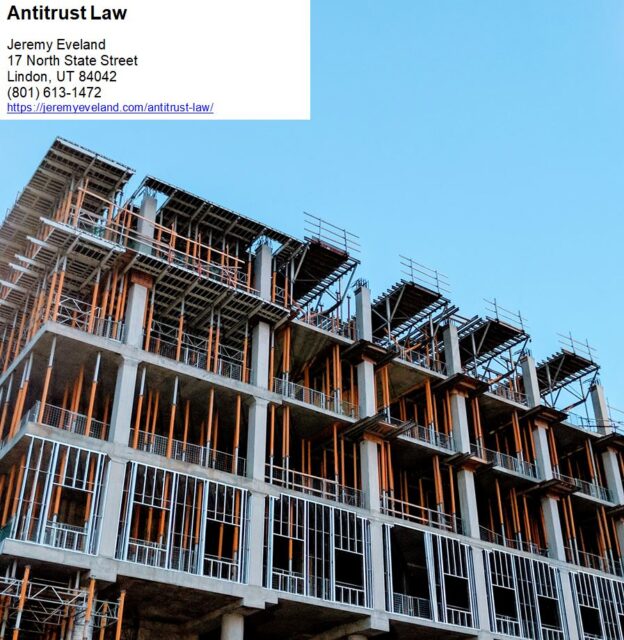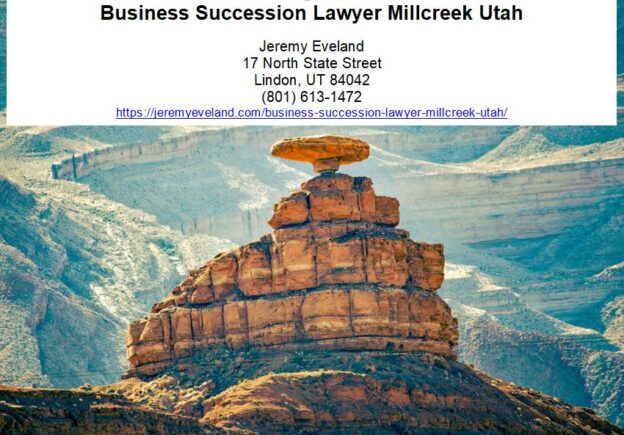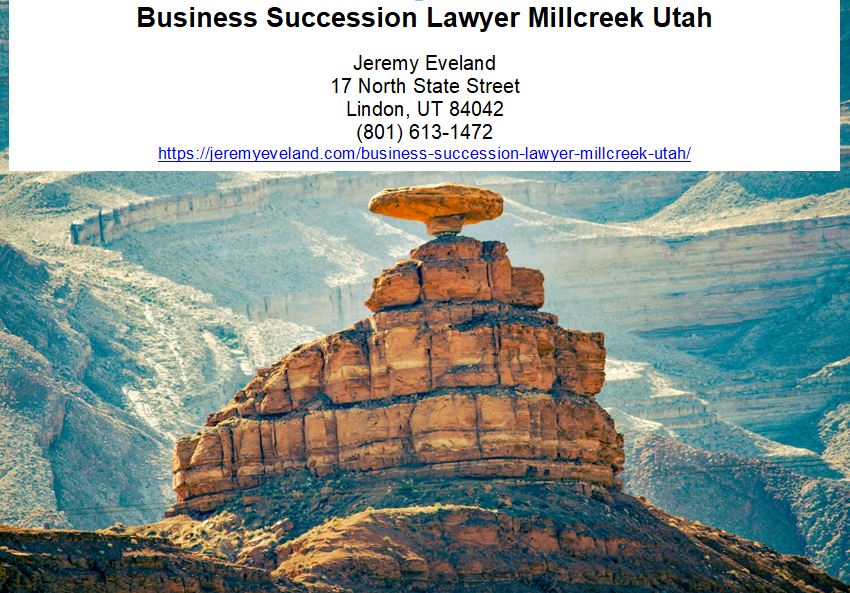Business Succession Lawyer Taylorsville Utah
Business succession is the process of planning and preparing for the transfer of ownership and/or management of a business from one generation to the next. It is a critical process for any business, as it ensures continuity and the continued success of the business. It also requires the consideration of numerous factors, such as the financial, legal, emotional, and tax implications.
Financial considerations are a key factor in business succession planning. It is important to plan for a smooth transition of ownership and/or management of the business to ensure its continued stability. This includes ensuring that the new owners or managers have the necessary capital, skills, and resources to take over the business. Additionally, legal considerations must be taken into account, such as the formation of a legal entity to hold the business, the transfer of assets, and the drafting of necessary documents.
The emotional aspects of business succession planning should not be overlooked. It is important for all involved to understand the implications of the transition, and to work together to ensure a successful outcome. It is also important to consider the tax implications of business succession, as there are often complex tax rules and regulations that must be taken into account.
Business succession planning is essential for any business, as it ensures the continuity and success of the business. It requires careful consideration of numerous factors, such as the financial, legal, emotional, and tax implications. With careful planning, successful business succession can be achieved, ensuring the continued success of the business.
Definition of Business Succession
Business succession is defined in Black’s Law Dictionary as “the transfer of ownership, management, and control of a business from one person or entity to another.”
Basically, it is a process of planning for the future of a business by ensuring that a clear path of succession is provided. The process involves assessing the current ownership and control of the business, determining potential successors, and developing a plan to ensure that the business is passed on successfully.
Succession planning is an important part of business planning, as it helps to ensure that the business can continue to operate in the event of the owner’s death or disability. It also allows the business to continue in the event that the owner wishes to retire or sell the business. A successful succession plan will ensure that the current owner’s goals and objectives are met, while also providing continuity and stability for the business.
The process of business succession can be complex and involve many different parties, such as the current owner, potential successors, legal advisors, financial advisors, and tax advisors. It is important to involve all parties in the planning process to ensure that the plan is successful and meets the needs of all involved. The plan should also involve a strategy for transferring the ownership of the business, as well as outlining the roles and responsibilities of the new owner.
Business succession is an important component of the business planning process, as it ensures that the business will continue to thrive after the current owner leaves. It is important to carefully consider all aspects of the succession plan and to involve all parties in the process to ensure that the business is passed on in the most effective way.
Overview of Key Considerations in Business Succession
From a legal perspective, the key considerations in business succession planning include: determining ownership and management, ensuring compliance with applicable laws and regulations, and resolving disputes. Ownership should be determined in accordance with the terms of the business entity’s governing documents, such as partnership agreements or corporate bylaws, and any applicable state and federal laws. Management should also be determined, including the roles and responsibilities of each manager or owner and the process for making decisions. The business should also ensure compliance with applicable laws and regulations which may include filing taxes, labor and employment regulations, and environmental regulations. Finally, it is important to consider dispute resolution methods and to plan for what will happen in the event of a dispute between the owners or managers.
From a financial perspective, key considerations in business succession planning include: assessing the financial health of the business, understanding the tax implications of the succession, and developing a plan to transition the business. It is important to understand the financial health of the business, including the financial position of the business, its assets and liabilities, and any potential sources of funding. It is also important to understand the tax implications of the succession, including the impact of any transfers of assets or changes in ownership. Finally, it is important to develop a plan to transition the business to the next owner or manager, including the transfer of assets, the transfer of knowledge, and the establishment of a succession plan.
From a practical perspective, key considerations in business succession planning include: identifying successors, introducing them to the business, and establishing a transition plan. It is important to identify potential successors and assess their qualifications, experience, and ability to manage the business. Once successors are identified, it is important to introduce them to the business, including its operations, its customers, and its staff. Finally, it is important to develop a transition plan, including training and mentoring, to ensure a successful transition.
Since business succession planning is a complex process that requires careful consideration of legal, financial, and practical implications; you should have a business succession lawyer assist you in your planning and execution of your succession plan. By understanding the key considerations in business succession planning, business owners and managers can ensure the continued success of their business.
Internal Business Succession in Taylorsville Utah
Internal Succession is defined as the process of passing ownership and management of a business from one generation to the next within a family or other closely held business structure. The primary intent of Internal Succession is to ensure that the business remains in the hands of the family or other closely held business structure, while providing a smooth transition of ownership and leadership.
The Internal Succession process should begin with a clear plan of action and timeline. This plan should include the development of a succession team to ensure that the transition of ownership and leadership is managed effectively. This team should include the current owner and business leader, as well as the potential successor. The team should also include legal counsel to ensure that all legal requirements for the transition of ownership and leadership are properly addressed.
The Internal Succession process should also include the creation of an Internal Succession Agreement. This agreement should define the rights and responsibilities of the current owner and business leader, as well as those of any potential successor. This agreement should also include provisions for the transfer of ownership and leadership, as well as details regarding the continued operation of the business.
Finally, the Internal Succession process should include ongoing monitoring and evaluation of the succession plan. This should include regular meetings between the current owner and business leader and any potential successors, as well as periodic assessments of the progress of the succession plan. By following these steps, Internal Succession can be used as a successful business succession planning tool.
External Business Succession
External succession is the process of transferring ownership of a business from one person to another, usually through the sale of the company. It is a critical process of business succession planning, as it ensures the continuity of the business and its operations even after the current owner or proprietor steps down.
External succession is governed by relevant laws and regulations of the jurisdiction in which the business operates. The statutory framework governing external succession provides a comprehensive set of legal requirements that must be met in order to ensure a valid transfer of ownership. These requirements typically include the preparation of legal documents such as a sale agreement, a transfer of business agreement, and other related documents. Additionally, the current owner or proprietor must provide relevant information and documents to the potential buyer, such as financial records, tax returns, and other relevant business documents.
In addition to the legal requirements, the current owner or proprietor should also ensure that the transition of ownership is done in a smooth and orderly manner. This includes the preparation of an effective succession plan that outlines the process of transferring ownership, and ensuring that the current owner or proprietor communicates their plans to the potential buyer in a timely manner. The transfer of ownership should also be accompanied by a comprehensive training program for the new owner or proprietor, so that they can successfully transition into their new role.
Ultimately, external succession is an important part of business succession planning. It is a complex and detailed process that is subject to a wide range of legal requirements. By adhering to the statutory framework, and taking the necessary steps to ensure a smooth and orderly transition of ownership, the current owner or proprietor can ensure the successful succession of their business.
Legally Choosing A Business Succession
This is some sample language of choosing a successor. This Succession Plan is intended to provide a framework for the orderly transfer of the ownership and control of [Business Name] (“Company”) in the event of the retirement, disability, death or otherwise incapacitation of [Current Owner] (“Owner”).
The Owner reserves the right to choose the successor to the business, provided that the successor has the necessary qualifications to take over the Company successfully. The Owner must consider the successor’s technical, managerial and entrepreneurial skills, as well as their ability to effectively lead the Company’s employees. The Owner shall also have the right to consult a professional advisor to review and evaluate potential successors. The Owner shall have the discretion to make the final decision as to the successor to the Company.
The successor shall enter into an agreement with the Owner that shall specify the terms and conditions of the succession, which shall include, but not be limited to, the transfer of ownership, the transfer of control, and the payment of a reasonable purchase price for the shares of the Company. The successor shall have the right to enter into a management agreement with the Owner, pursuant to which the successor shall assume the management of the Company. The terms and conditions of the management agreement shall be agreed upon between the Owner and the successor.
The Owner shall have the right to withdraw from the succession plan at any time, provided that the Owner gives reasonable notice to the successor. This Succession Plan shall be binding upon the Owner, the successor and any successors of the Owner, and shall inure to the benefit of the successors of the Owner. In the event of any dispute concerning this Succession Plan, the parties shall attempt to resolve the dispute through good faith negotiations. Any disputes that cannot be resolved through negotiations shall be submitted to a court of competent jurisdiction for resolution.
Changes To The Business During Succession
When a business is transitioning from one generation of ownership to the next, it is important to consider how the changes will affect the business. During the business succession plan phase, it is critical for the new owners to evaluate the current state of the business and make necessary changes to ensure its future success. This could involve updating the organizational structure, implementing new technology, or revising the business model. Additionally, it is important to ensure that the new owners are comfortable with the changes and understand the implications of the changes to the business.
Organizational changes may include restructuring departments, establishing new governance structures, or updating job roles. These changes could improve operations, reduce costs, and increase efficiency. Technology changes could involve introducing new software or hardware to increase efficiency, reduce errors, and improve customer service. Additionally, revising the business model could involve expanding into new markets or launching new products or services.
Making changes to the business during a business succession plan phase is an important step for the future success of the business. The new owners need to be aware of the potential risks and rewards associated with the changes and take the necessary steps to ensure the success of the business. With proper planning and execution, the changes can help the business reach new heights.
Business Succession Lawyer Taylorsville Utah Consultation
When you need legal help from a Business Succession Lawyer in Taylorsville Utah, call Jeremy D. Eveland, MBA, JD (801) 613-1472 for a consultation.
Jeremy Eveland
17 North State Street
Lindon UT 84042
(801) 613-1472
Recent Posts
The Utah Uniform Partnership Act
The 10 Essential Elements of Business Succession Planning
Business Succession Lawyer Taylorsville Utah
Business Succession Lawyer South Jordan Utah
Business Succession Lawyer Lehi Utah
Business Succession Lawyer Millcreek Utah
Business Lawyer Salt Lake City Utah
Business Transaction Lawyer Salt Lake City Utah
Taylorsville, Utah
|
Taylorsville, Utah
|
|
|---|---|

Location in Salt Lake County and the state of Utah.
|
|
| Coordinates: 40°39′18″N 111°56′58″WCoordinates: 40°39′18″N 111°56′58″W | |
| Country | United States |
| State | Utah |
| County | Salt Lake |
| Settled | 1848 |
| Incorporated | July 1, 1996 |
| Named for | John Taylor |
| Government
|
|
| • Mayor | Kristie Overson |
| • City Council | Ernest Burgess, Anna Barbieri, Meredith Harker, Curt Cochran & Bob Knudsen |
| • Presiding Judge | Christopher Bown |
| Area | |
| • Total | 10.85 sq mi (28.10 km2) |
| • Land | 10.85 sq mi (28.10 km2) |
| • Water | 0.00 sq mi (0.00 km2) |
| Elevation
|
4,295 ft (1,309 m) |
| Population
(2020)
|
|
| • Total | 60,448 |
| • Density | 5,571.24/sq mi (2,151.17/km2) |
| Time zone | UTC−7 (Mountain (MST)) |
| • Summer (DST) | UTC−6 (MDT) |
| ZIP codes |
84129, 84123
|
| Area code(s) | 385, 801 |
| FIPS code | 49-75360[2] |
| GNIS feature ID | 1433206[3] |
| Website | http://www.taylorsvilleut.gov/ |
Taylorsville is a city in Salt Lake County, Utah. It is part of the Salt Lake City metropolitan area. The population was 60,448 at the time of the 2020 census. Taylorsville was incorporated from the Taylorsville–Bennion CDP and portions of the Kearns metro township on July 1, 1996. The city is located adjacent to Interstate 215 and Bangerter Highway. It is located in the middle of the Salt Lake Valley.
[geocentric_weather id=”03b7f918-df88-42ec-a103-19a9cddae4f8″]
[geocentric_about id=”03b7f918-df88-42ec-a103-19a9cddae4f8″]
[geocentric_neighborhoods id=”03b7f918-df88-42ec-a103-19a9cddae4f8″]
[geocentric_thingstodo id=”03b7f918-df88-42ec-a103-19a9cddae4f8″]
[geocentric_busstops id=”03b7f918-df88-42ec-a103-19a9cddae4f8″]
[geocentric_mapembed id=”03b7f918-df88-42ec-a103-19a9cddae4f8″]
[geocentric_drivingdirections id=”03b7f918-df88-42ec-a103-19a9cddae4f8″]
[geocentric_reviews id=”03b7f918-df88-42ec-a103-19a9cddae4f8″]


























